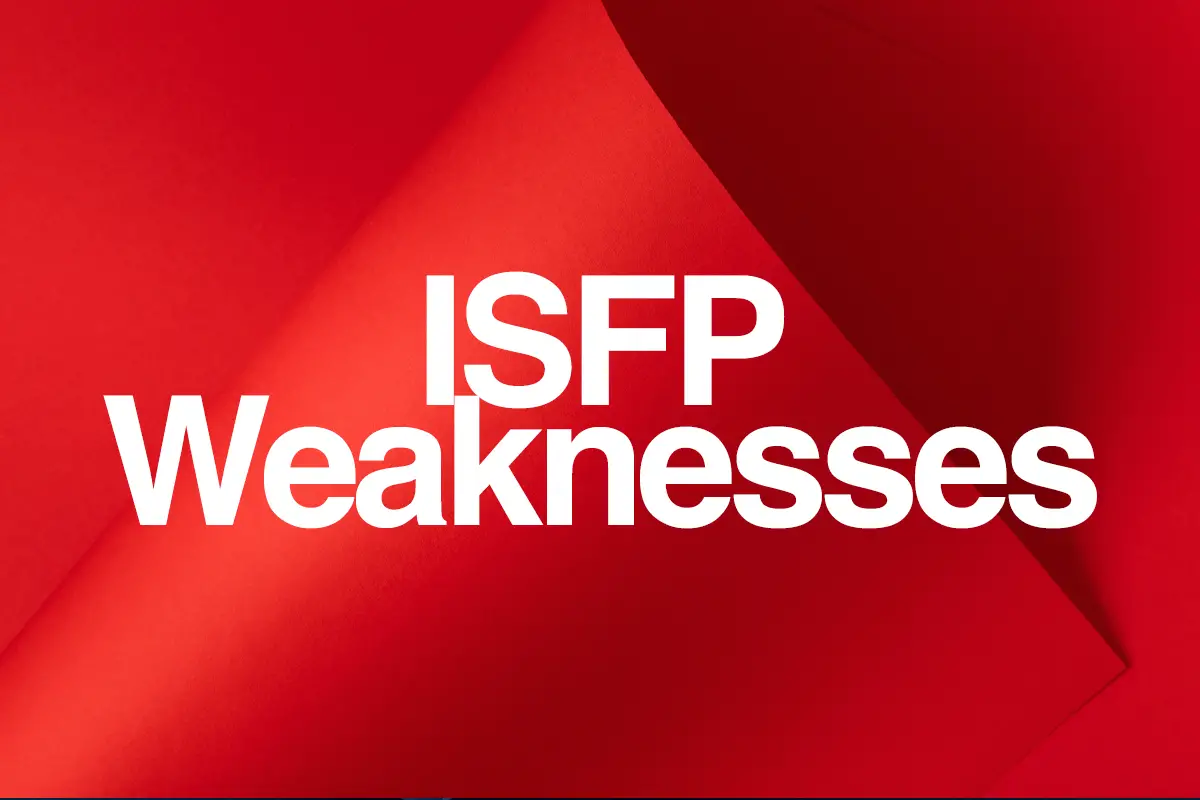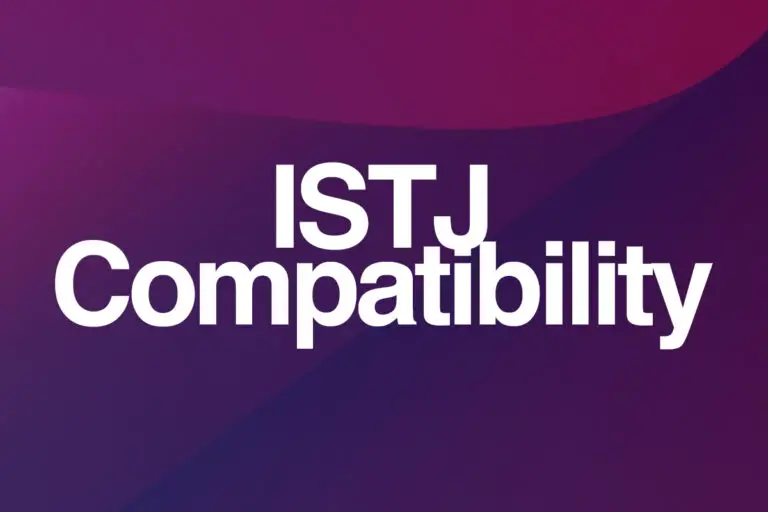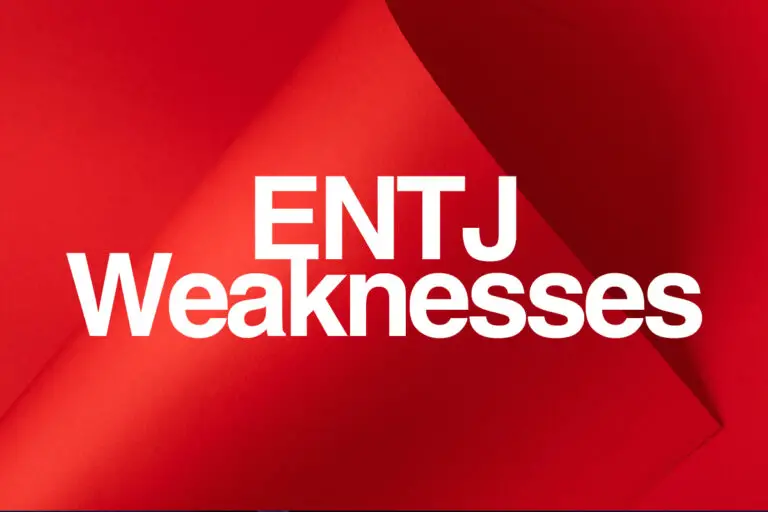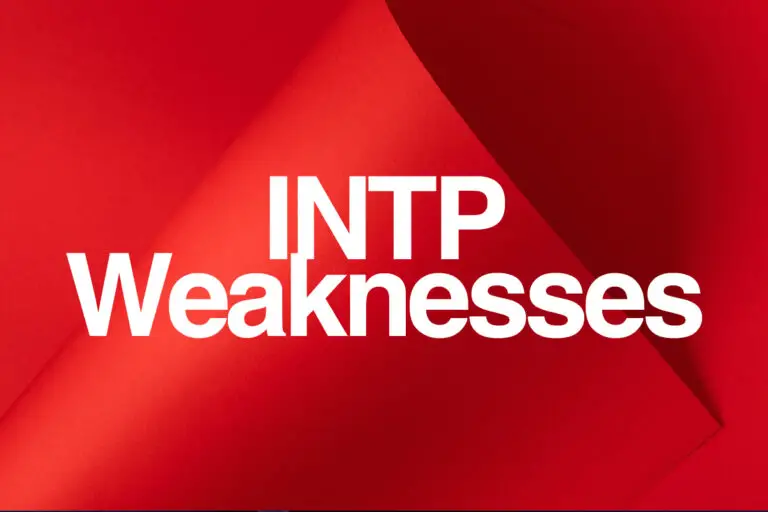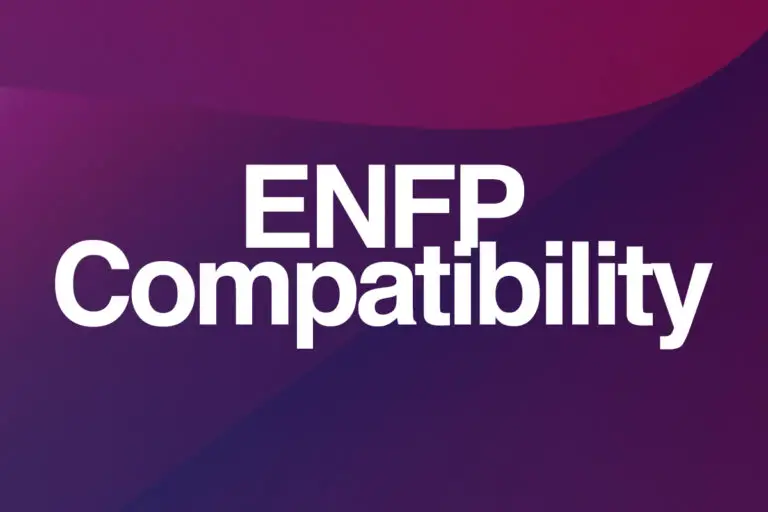7 Major ISFP Weaknesses & How to Manage Them (2024)
It is better to acknowledge your weaknesses rather than pretending that they do not exist.
Once you are aware of them you can handle them accordingly so that they do not impact your ability to make the right decisions.
Two of the biggest ISFP weaknesses are that they are extremely sensitive and indecisive.
ISFP Weaknesses
1. Extremely Sensitive
ISFPs have the negative quality of being extremely sensitive to other people’s opinions and are susceptible to having their feelings hurt by rejection or harshness.
People with the ISFP personality have a preference for the Feeling (F) trait over the thinking trait, which makes them conscious of the feelings of others.
ISFPs have the tendency to exaggerate and mistakenly interpret the intentions of others’ ideas as an attack or criticism.
An ISFP flaw is they frequently want affirmation and acceptance from others, making critiques more damaging to them.
How to Deal With it
- ISFPs should understand that people speaking their minds are not always critiquing them; they are just voicing their opinion, which may be different from that of the ISFPs.
- People with the ISFP personality have to learn to control their emotions, set realistic standards, and value their own approval against all odds.
- They should try overcoming this negative personality trait and leave some room for constructive criticism to achieve personal growth.
2. Indecisive
Flexibility and indecision may occasionally coexist, and ISFPs can sometimes cross that line because of their tendency to be so open-minded.
Their preference of Perceiving (P) trait over the sensing trait makes them ambiguous and unpredictable, which may be difficult for people close to them.
ISFPs are flexible in nature, but it may backfire when they start changing their decisions or plans with every new suggestion or idea.
Altogether, Indecisiveness is a weakness for ISFP personality which affects them negatively and should be worked upon.
How to Deal With it
- They should first acknowledge the outcome of their indecision and understand the scope and effect it may have not only on themselves but also on others.
- ISFPs should list all their options, focus on the pros and cons of each option and use the process of elimination to reach a conclusion.
- People with the ISFP personality have room for improvement and do so by creating personal deadlines and technically forcing themselves into making a decision.
3. Hyper Independent
Hyper independence refers to opting to be independent of everything and everyone, even when you are aware it may negatively impact you.
The reason for being this independent is that they do not want to burden anyone with their problems and prefer keeping it to themselves.
People with the preference for the Introversion (I) trait tend to be reserved, but when that reaches an unhealthy level, it is called hyper independence and it is very toxic.
In such situations, their partner may think they are being distant, which makes it an ISFP weakness in relationships.
How to Deal With it
- They should deal with being too independent by building strong bonds with people they feel comfortable with and they can rely upon.
- ISFPs should understand that friends and family are there to help us through the tough times and they can depend on them.
- Even at their workplaces, ISFPs should ask for help if they have a problem in understanding a task or if it is too overwhelming for them.
4. Foresight
Another ISFP weakness is the inability to consider the future, make concrete plans for it and subsequently put in the work to bring their plans to reality.
ISFPs often fail to comprehend the full consequences of their choices or how they will eventually make an impact on their future.
The preference of the Perceiving (P) trait makes them impulsive but the absence of Intuition as a primary function keeps them unprepared for the spontaneous events.
Altogether, they may experience financial difficulties and be surprised by unexpected crises if they are not well planned.
How to Deal With it
- People with the ISFP personality should stick with their approach instead of amending it whenever discussed or critiqued by someone else.
- ISFPs should make rough plans if they are not able to handle and follow concrete plans, this would help them in having some sort of contingency planning.
- Even if they do not intend on sticking to their long term plans, ISFPs should visualize their ideal future and list all the things required to achieve it.
5. Easily Stressed
ISFPs are sensitive individuals and are severely affected by even the smallest of problems or inconveniences.
They can get stressed due to a lot of reasons that include having too many obligations, not getting personal space, a strict work environment or not receiving validation from their peers.
ISFP problems include questioning their previous decisions and all the other wrong things when they are stressed, making it worse than before..
ISFP under stress become restless and if it persists, they may disregard their own well being to free themselves from the clutches of stress.
How to Deal With it
- To deal with this personality weakness, they should take some time out alone to process their feelings and emotions.
- ISFPs can also have a chat with someone close to them who can understand them, listen to them, can offer a piece of advice or say something nice to affirm them.
- They can go for a fun activity or pursue their hobbies when they are stressed, it will help them distract themselves from it.
6. Over Accommodating
People with the ISFP personality are kind hearted individuals who are observant of the feelings and needs of the people around them.
ISFPs have a preference for the Feeling (F) trait over the thinking trait which makes them more inclined towards the emotional aspect than the logical aspect.
However, they can be so considerate at times that they may ignore their own needs and emotions in the process of serving others.
They tend to accommodate others even when they have surplus work of their own, which causes burnout and is an ISFP personality weakness.
How to Deal With it
- ISFPs should always check if they have any prior obligations or commitments before taking on new projects or helping someone else with their problems.
- They should make sure they are taking care of their own needs and giving themselves enough time to replenish at regular intervals.
- Lastly, they need to learn to say no or decline a request, ask for help when the task is overwhelming and make fewer sacrifices.
7. Easily Bored
ISFPs have a strong affinity for excitement and adventure and are often bored by routine and predictability.
They have a preference of Sensing (S) trait over the intuitive one and need to feed their senses new information constantly to not get bored.
Focus and dedication are necessary for effective learning, but ISFPs are occasionally not as devoted as they should be, limiting their ability to gain some useful knowledge.
People with the ISFP personality get bored when there is a deficiency of excitement in their life and should therefore opt for careers that offer flexibility and have fast paced environments.
How to Deal With it
- To deal with this negative ISFP characteristic, ISFPs can develop a hobby which they can pursue after or during job hours that keeps them on their toes.
- An even better solution to this ISFP problem is to choose a career path that is not monotonous or boring and aligns with their values.
- ISFPs should make a routine for themselves so that they always have something to look forward to which prevents them from getting bored easily.
FAQ
What is ISFPs weakest function?
The weakest core function of ISFPs is the Extraverted Thinking (Te) which is why they are often indecisive and struggle with choosing a life path or making a practical plan.
What do ISFPs struggle with?
ISFPs sometimes struggle with the lack of motivation, needing to force themselves to complete tasks they once enjoyed doing which is a problematic characteristic.
What do ISFPs fear the most?
The thing that ISFPs fear the most and need to overcome is confrontation and conflict. They often hold their opinion back if it causes conflict or an argument.
What annoys the ISFPs the most?
ISFPs are annoyed the most when they do not get their personal space and room to think. They like to keep their lives private and hate it when people sneak up on them.
What is the dark side of ISFPs?
The dark side of ISFPs is that they are highly sensitive to criticism and even if someone presents their point of view, ISFPs may treat it as a criticism of their idea.
What annoys people about ISFPs?
Stifling the conversation just to avoid a debate or argument is an ISFP negative trait and annoys people the most. They may pretend to agree with someone else as long as it curbs the argument.
What are ISFPs misunderstood as?
ISFPs are misunderstood as emotional and indecisive introverts but they are realistic, practical and possess the ability to brainstorm rational solutions for a given problem.
What stresses out ISFPs the most?
Sticking to a routine or schedule causes stress to the ISFPs. Since they have the Perceiving trait, they like to be free flowing and spontaneous instead of planning everything out.
How to improve ISFP weaknesses?
ISFPs should improve their weaknesses by focusing on the potential problem areas of handling criticism, second guessing themselves and indulging in ventures that are too risky.

